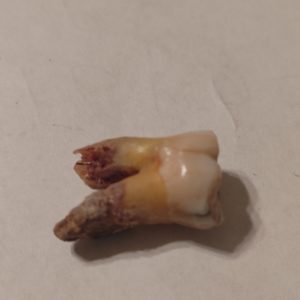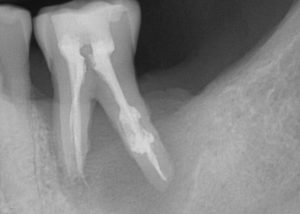PLG Files New Dental Malpractice Lawsuit Alleging that Dentist Left a Metal File in Client’s Tooth After a Root Canal
Many people dislike going to the dentist. Some people are even scared of going. There is a clinical term for individuals who develop a phobia of going to the dentist. This is known as dentophobia or odontophobia. The phobia is usually developed after a painful dental treatment or negative dental experience that the individual had when he or she was a child. Unfortunately, if you are one of those individuals, reading this post will not help you deal with this phobia. It will actually make it worse.
When Should You Hire A Personal Injury Attorney to Handle A Dental Malpractice Case?
Our firm has handled numerous dental malpractice cases over the last few years. We are called every week by individuals who have dental malpractice cases. Most of these cases are not ones that we can help with because the damages are too small. This is true even though dental malpractice may have been committed.
The issue is simply whether the mistake is one that results in damages that are great enough to involve an attorney and file a lawsuit. For many of the calls we receive, that is not the case. The damages are limited. When the damages are under $10,000, we tell the client to sue the dental provider in small claims court. When the damages are $25,000 or more, we consider taking the case and prosecuting it on behalf of the client. If you are unsure how much in damages your case may be worth, you should contact an attorney to discuss it.

What is Dental Malpractice?
Dental malpractice is professional negligence. Simply put, it is negligence committed by a dentist or dental provider. Under the law, dental malpractice occurs when a dentist or dental provider deviates from the standard of care. Specifically, when a dentist or dental provider fails to use the skill and care that a reasonably careful dentist or dental provider would have used in similar circumstances.
The elements one must establish to prevail on a claim of professional dental negligence are:
- The duty of the dental professional to use such skill, prudence, and diligence that other members of his profession commonly possess and exercise;
- A breach of that duty;
- A proximate causal connection between the negligent conduct and the resulting injuries;
- Actual loss or damage resulting from the dental professional’s negligence.
When the above elements are proven, an injured patient can recover damages for the dental malpractice he or she has experienced.
What Are Some Examples of Dental Malpractice?
What is clear from the calls we receive is that dental malpractice occurs frequently. What is also apparent from the calls we take is that dentists and dental providers appear to be more negligent, as a collective group, than medical doctors and other professionals. In fact, some of the calls we get are just jaw-dropping. For example, we have handled cases involving the following:
- Dentist errantly removes a child’s adult tooth thinking it was a baby tooth and then re-implants it without notifying the child or her parents of the error.
- Dentist wrongfully extracts client’s permanent molar when he intended to extract a wisdom tooth.
- Dentist performs a root canal on the wrong tooth.
- Dentist leaves a foreign object in the client’s tooth during a root canal and filling.
- Dentist removes wisdom teeth and in doing so breaks the client’s jaw and causes nerve damage resulting in facial paresthesia.
The above cases are just some illustrations of the types of dental malpractice cases that we have handled.
California Dental Malpractice Cases Have Limitations and Strict Deadlines
Dental malpractice cases in California have limitations that are not favorable to the injured victim. One of those limitations are on the amount of pain and suffering damages that one can recover. Under California law, the most someone can recover for pain and suffering in a dental malpractice case is $250,000.
Likewise, California law has certain requirements that must be met before someone can file a lawsuit for dental malpractice. Unlike other lawsuits, before you can sue a dental provider for negligence, you must give notice of your intent to do so. California Code of Civil Procedure Section 364 requires that this notice be given and that the dentist be notified of “the legal basis of the claim and the type of loss sustained, including with specificity the nature of the injuries suffered.”
Unlike other lawsuits, before you can sue a dental provider for negligence, you must give notice of your intent to do so.
Generally, California dental malpractice cases must be advanced within one year from the time the malpractice event occurred or from when the injured party knew or should have known about it. However, an individual must commence suit within three years of the malpractice event regardless of when they learn about it. This three year limitation is subject to certain exceptions, one of which includes the presence of a foreign body. There are also exceptions for fraud and that apply to minors. However, these time limitations are tricky and controlled by California Code of Civil Procedure Section 340.5. If you believe you have a dental malpractice case, you should consult with an experienced attorney to make sure your rights are preserved.
Details About the Dental Malpractice Lawsuit Recently Filed by Our Dental Malpractice Attorneys
The dental malpractice attorneys at our firm recently filed a new dental malpractice lawsuit. The lawsuit was filed on behalf of a client who experienced persistent headaches, infections and tooth sensitivity following a root canal and crown. The client believed he just received a “bad” root canal. However, more than two years after the procedure, he received treatment from another dentist who removed the tooth. In removing the tooth, they found a metal dental file that had been left in the client’s tooth. The metal dental file was the type of file commonly used by dentists while performing root canal procedures. Our firm filed a lawsuit alleging that the previous dentist had negligently left the dental file in the client’s tooth when performing the root canal. We claimed that this caused the client’s pain, headaches and repeated infections.

The dental malpractice lawsuit was filed in Sonoma County Superior Court. It is entitled Ringwald v. Regina Serafica and Serafica Dental Corporation DBA Lakewood Dental. It is assigned case # SCV-268650. The actual allegations from the lawsuit our attorneys filed are below:
- On March 28, 2018, Plaintiff underwent a root canal procedure of his #19 tooth that was performed by Serafica at Lakewood Dental.
- Following the procedure, Plaintiff had persistent issues with his #19 tooth. He developed pain, toothaches, headaches and nausea among other problems.
- Plaintiff called Serafica complaining of these issues and she prescribed him pain medication and antibiotics.
- Plaintiff asked to be scheduled for a follow up appointment to address the problems. Serafica refused to treat him complaining that he was a Medi-Cal recipient and that it took too long for her to receive payment.
- The problems persisted and Plaintiff attributed the issues with his #19 tooth to Serafica doing a poor job on the root canal. Unbeknownst to Plaintiff, it was more than that.
- On February 12, 2021, Plaintiff went to a dentist to have his #19 tooth examined. The dentist found a major infection around the tooth. The dentist advised that the tooth would have to be extracted.
- The #19 tooth was removed and the infection cleaned out. The tooth was then examined and part of a metal file was discovered. The metal file was left from the procedure performed by Serafica and was the cause of the issues Plaintiff was experiencing in his #19 tooth.
- Plaintiff underwent a bone grafting procedure and is now waiting for an implant and prosthetic tooth to replace the #19 tooth that he lost as a result of Serafica’s negligence.
Our firm is seeking damages for the client for his pain, suffering, dental expenses and injuries. The case is currently pending and will likely proceed to trial sometime in 2022.
Contact a Skilled Dental Malpractice Attorney
If you or a loved one was injured due to the negligence of a dentist or dental provider, contact our law firm today. The attorneys from the Piccuta Law Group have experience handling dental malpractice cases. We are available now for a free consultation and will tell you if you have a dental malpractice claim. A consultation can be by phone and takes less than 15 minutes. If we take your case, it costs you nothing unless we recover for you. Contact one of our attorneys today.
About the author: The content on this page was written by California civil rights lawyer and Monterey personal injury attorney Charles “Tony” Piccuta. Piccuta graduated with honors from Indiana University-Maurer School of Law in Bloomington, Indiana (Ranked Top 35 US News & World Report 2018). Piccuta took and passed the State bars of Arizona, California, Illinois and Nevada (all on the first try). He actively practices throughout California and Arizona. He is a winning trial attorney that regularly handles serious personal injury cases and civil rights lawsuits. He has obtained six and seven figure verdicts in both state and federal court. He has been recognized by Super Lawyers for six years straight. He is AV Rated by Martindale Hubble. He is a member of the Consumer Attorneys of California, American Association for Justice, National Police Accountability Project, Arizona Association of Justice, Maricopa County Bar Association and Scottsdale Bar Association, among other organizations.
Disclaimer: The information on this web site is attorney advertising and is for informational purposes only. It does not constitute legal advice. Reading and relying upon the content on this page does not create an attorney-client relationship. If you are seeking legal advice, you should contact our law firm for a free consultation and to discuss your specific case and issues.
Sources:
[1] https://leginfo.legislature.ca.gov/faces/codes_displaySection.xhtml?lawCode=CCP§ionNum=364
[2] https://leginfo.legislature.ca.gov/faces/codes_displaySection.xhtml?lawCode=CCP§ionNum=340.5

